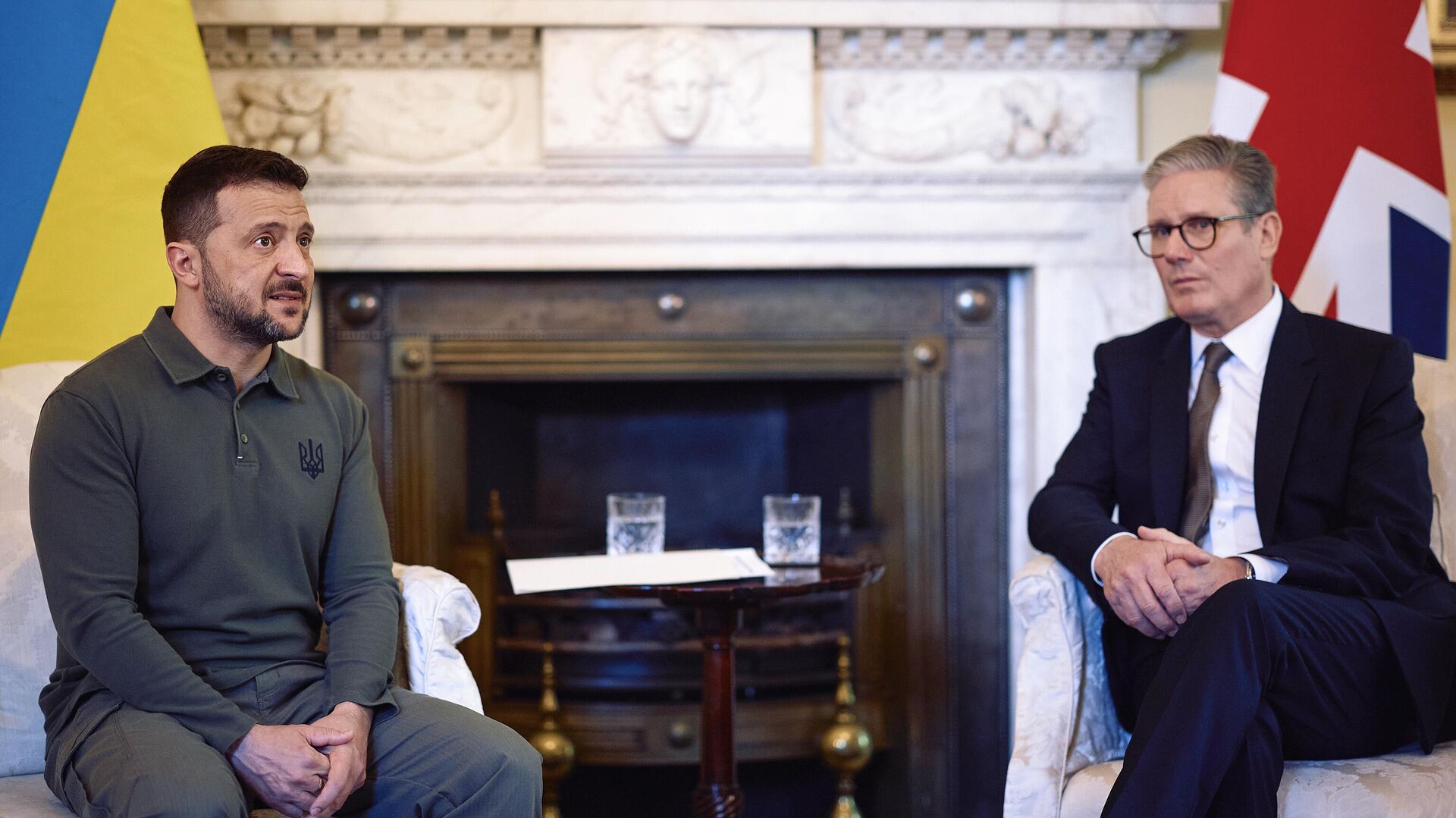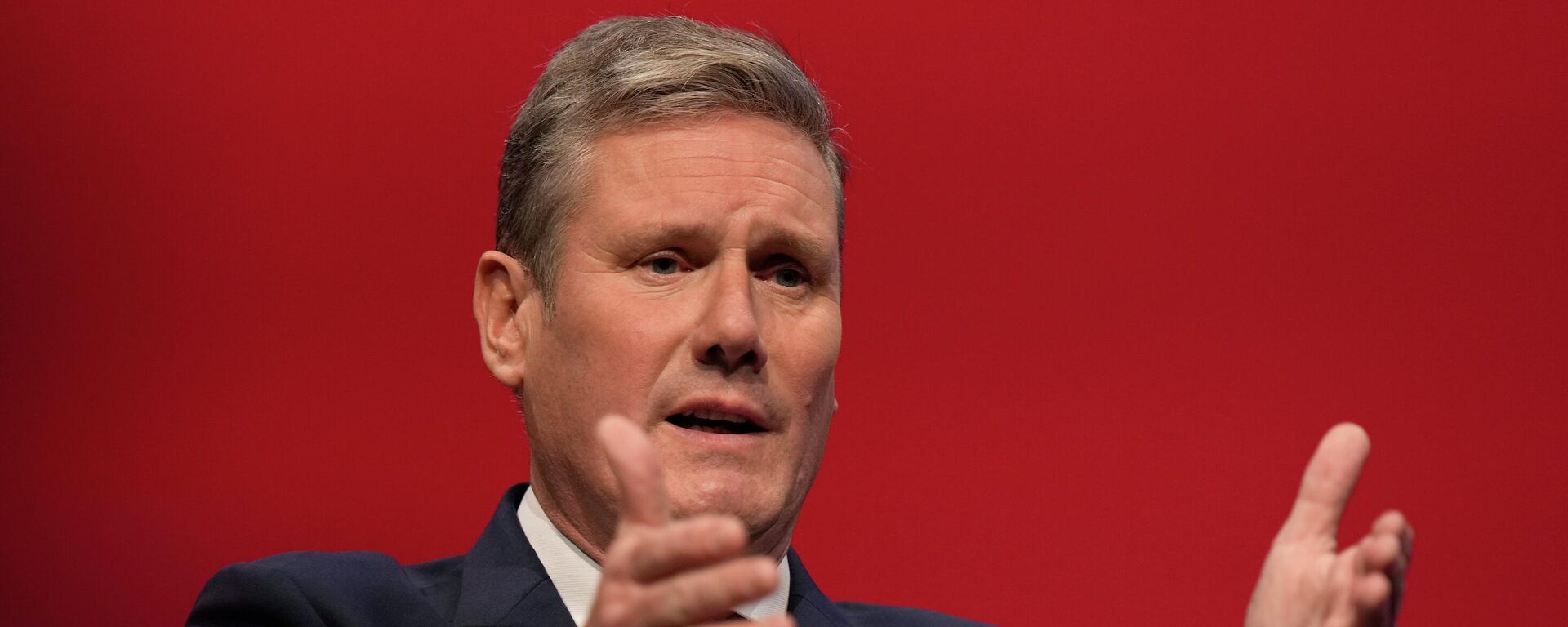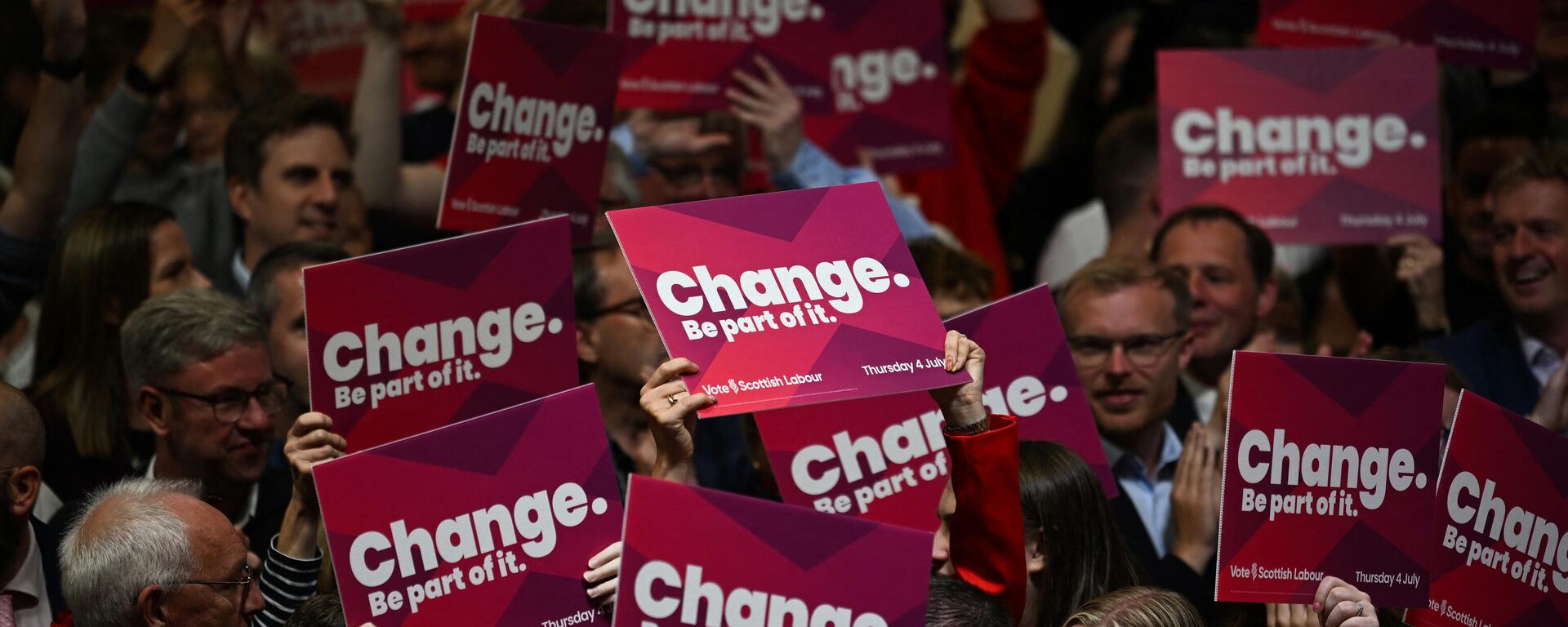‘Ukraine Assistance Largesse’, Self-Harming Sanctions Help Push UK Debt to 100% of GDP Milestone
15:14 GMT 22.09.2024 (Updated: 15:15 GMT 22.09.2024)

© AP Photo / Benjamin Cremel
Subscribe
Britain’s debt has surpassed 100% of GDP, figures from the Office for National Statistics published this week show. The debt load – the UK’s highest since 1961, is attributable to an array of factors, among them the political class’s readiness to sacrifice the economic interests of ordinary Britons in favor of foreign elites, observers say.
The UK hit an unpleasant debt milestone this summer, joining the club of about two dozen nations whose total public sector debt has exceeded the total market value of all goods and services produced and rendered over a one-year period.
The Office for Budget Responsibility (OBR) says borrowing in August alone reached £13.7 billion - £2 billion more than expected, with total borrowing for the current financial year, which began in April, reaching £64.1 billion, £6 billion above the OBR’s estimates.
The news comes following warnings by Prime Minister Starmer last month that the upcoming budget, to be rolled out in October, would be “painful” for Britain as his Blairite Labour government prepares for spending cuts and possible tax hikes to address a £22 billion “black hole in public finances” left by his predecessors. Public finances are “worse than we ever imagined,” Starmer emphasized.
The Institute for Fiscal Studies, a London-based economic research think tank, warned in May that the next government would face the “hardest fiscal challenge in 70 years,” warning that banking on growth to get out of the crisis would be “wishful thinking,” and calling on the UK’s political parties to be “honest about the painful fiscal choices” to come.
The UK joins its Transatlantic ally in the 100% debt to GDP club, with the US hitting the milestone in 2013, and now standing at over 122%, paying over $1 trillion in interest on its gargantuan $35.3 trillion debt this year alone.
But “unlike the US, the UK can't simply print its currency with relative impunity. The hard decisions are now very near, and they will include both spending cuts, which are hard for socialist politicians to be pleased with, and ever-unwelcome tax increases, in this case rather liberally spread throughout the demographic and income spectrum,” veteran market and financial analyst Paul Goncharoff told Sputnik, commenting on London’s debt dilemma.
“The UK budget deficit has been steadily widening since 2018, when it was at 81.8% of GDP,” Goncharoff pointed out, noting that a perfect storm of Brexit, COVID, self-harming sanctions, weakening trade ties with China and “Ukraine assistance largesse” helped push London over the top into the current mess.
The question now is what to cut, Goncharoff said, emphasizing that British and other Western politicians’ stiff upper lipped promises to continue supporting Ukraine in NATO’s proxy conflict against Russia is starting to mean “real damage to their economies” – which could get worse if Kiev defaults on its debts and leaves its patrons, including the British treasury, holding the bag.
British aid commitments to Ukraine have already topped £11 billion (about $14.6 billion US), according to Kiel Institute for the World Economy data, and Starmer has vowed to continue sending economic and military assistance eastward amid growing austerity at home.
De Montfort University associate professor of politics Alistair Jones says that the 100% of GDP showing isn't critical, pointing out that Britain's debt reached 250% of GDP in the post-WWII period. Nonetheless, there's certainly plenty of blame to spread around for the UK’s current debt debacle, he noted.
“If people are looking at who to blame for the size of the debt and all the ensuing problems, they may look at the current Starmer government who are overspending. They may be looking at the Sunak government, which made a lot of commitments. They may look at the Johnson government and the spending during the COVID period, but the actual problem, as to why the debt is so high at the minute, goes back to the global financial crisis of 2008 and the then-incoming government in 2010, the Conservative-LibDem coalition, which introduced austerity,” Jones told Sputnik.
The knock-on effect of that policy was that Britain struggled with the slowest economic recovery among major nations, leaving it “in no fit position to cope with COVID when it arrived and other financial crises since then, linked in with the war in Ukraine.”

19 September 2024, 16:09 GMT
Could Support for Kiev End Up Toppling Starmer?
“The new government has already cut some pensioners off from winter fuel allowances. If the UK has a cold winter, these issues, together with rising taxes, will create social discord and unhappy general public. British elderly deaths from cold weather will inevitably be linked to the amounts being spent on Ukrainians,” Goncharoff warned, stressing that Britons will see “an obvious correlation” between the financing London has been doling out to Kiev and rising British debt and economic troubles.
If Ukraine’s debt bubble pops, “the result will probably be the introduction of a higher rate of VAT to offset these debts,” from 20% today perhaps to as high as 27%, as has already been done in some EU countries, thus passing “the financing of Ukraine directly onto the British consumer,” the analyst said.
With successive post-Brexit governments proving unable to forge a new close trade relationship with the US or India, and weakening trade ties with China, the establishment will likely have no choice but to further increase debt levels, Goncharoff says.
The only real alternative would be to pursue “an entirely new political direction. However, the governments’ pushing of unfriendly foreign policies and recent intense criticism of certain [foreign] governments have made any political recovery and a revised path to global trade very difficult,” the observer concluded.



